![Ayler, Albert: La Cave Live, Cleveland 1966 Revisited [2 CDs] (ezz-thetics by Hat Hut Records Ltd) Ayler, Albert: La Cave Live, Cleveland 1966 Revisited [2 CDs] (ezz-thetics by Hat Hut Records Ltd)](https://www.teuthida.com/productImages/misc4/31352.jpg)
Never-before released recordings of tenor saxophonist Albert Ayler's 1966 band recording in his home town of Cleveland at club La Cave, recorded over two nights in a superb sextet with brother Donald on trumpet, Frank Wright on tenor sax, Michel Samson on violin, Clyde Shy on double bass and Ronald Shannon Jackson on drums, performing Ayler's compositions and Don Cherry's "D.C.".
In Stock
Quantity in Basket: None
Log In to use our Wish List
Shipping Weight: 3.00 units
EU & UK Customers:
Discogs.com can handle your VAT payments
So please order through Discogs
Sample The Album:
Albert Ayler-tenor saxophone
Donald Ayler-trumpet
Frank Wright-tenor saxophone
Michel Samson-violin
Mutawef Shaheed-double bass
Ronald Shannon Jackson-drums
Click an artist name above to see in-stock items for that artist.
UPC: 752156112327
Label: ezz-thetics by Hat Hut Records Ltd
Catalog ID: ezz-thetics 1123-2
Squidco Product Code: 31352
Format: 2 CDs
Condition: New
Released: 2022
Country: Switzerland
Packaging: Cardboard Gatefold
Recorded at La Cave, in Cleaveland, Ohio, on April 17th, 1966.
"For believers and non-believers alike, it is the Holy Ghost that presents the problem. How are we meant to understand it? As pure spirit? As a revenant? As merely the balance that holds Father and Son together. In Andrei Rublev's most famous icon, the Trinity is portrayed as three vigorous young men, organised without the use of modern perspective, in a dynamic triangle. It is impossible at first glance to tell apart Father, who we would presume to be aged, and Son, who logically ought to be younger. But what of the Holy Spirit: should it (he?) have a physical form at all.Albert Ayler famously said "Trane was the Father, Pharoah was the Son, I am the Holy Ghost". It's a description whose tenses seem a little ironic now, because Pharoah Sanders is [in 2021] still with us, while Albert has been gone these fifty years. If he believed that he carried forward the great transformation in jazz that Coltrane represented, he was not fated to do so for long in an earthly way.In a curious sense, Albert Ayler now seems more distant from us - thus maybe confirming some aspects of his boldly blasphemous claim - than either of the other two. Coltrane's music is again all around us, as live tapes and unreleased studio material are made available. Sanders, again, continues to ply his trade past the age of 80, twice that achieved on earth by John Coltrane. But Albert Ayler continues to resist and escape us. In part, this is because his own mind was clouded and his grasp on everyday reality often uncertain. He shared with brother Don a tendency to depression and mental disorder, and in the end that was what destroyed him. Forget the conspiracy theories. Albert was an all too familiar statistic. However horrified we might be by the death by police hands of young African- Americans, there is an even more frightening figure lying down among in the small typeface: the needless deaths of African-American men failed by the mental health system.There are other, more artistic reasons, why Albert Ayler might seem far from us. His music espoused a certain "primitivism" that seemed to evoke the gatherings and rituals of ancestral peoples and early settlers. The word "primitive" itself has to be used with great care, but given that there is a strain of Christianity that identifies itself as such - upper-class Primitive - that should be our point of reference, in the same way as "radical" always needs to be seen as something to do with roots.Albert was a primitive in the same sense that he was a radical. He went back to the origins of things, digging deep. But there is another sense in which he seems fugitive. Quite simply, he didn't leave behind very much. In comparison to Coltrane, who had substantial official recording careers at Prestige and Atlantic & Impulse!, with a single Blue Note title teasingly punctuating the list, in comparison to Sanders who has continued to release music in constantly evolving forms, Albert Ayler left only a scattering of studio releases, of which the last few still provoke fierce discussion. Were they a surrender to r'n'b populism, or were they the logical extension of everything that had gone before? The jury is still out.Hence the excitement fifteen years ago when a whole box of hitherto unreleased Albert Ayler material appeared on the Revenant imprint (which explains that word in the opening paragraph!) as Holy Ghost: Rare and Unissued Recordings 1962 - 1970, the most concentrated documentation of Albert Ayler's work there had ever been.It is almost a market law that box sets are bought and treasured but rarely listened to. They are like family Bibles, full of significant inscriptions, but consigned forever to a shelf. The record you are holding offers an opportunity to listen to Albert at a key moment in his creative life and for the moment unencumbered by the monumentalism of a box set. In between, he had worked as steadily as at any time in his life, making the Village Vanguard recordings that appeared on Impulse! as Live In Greenwich Village and, with essentially the same line-up, the superb European performances from the previous month that appeared on hatART or hatOLOGY and ezz-thetics (all by Hat Hut Records) as Berlin/Lörrach/Paris/Stockholm1966. These are justifiably celebrated recordings and have become key texts in the Ayler story. Other recordings of the time find him in Slugs' Saloon, a hub for hard bop-into-free jazz. Almost unknown was the series of tapes made in April 1966 at a club called La Cave. It was all the more significant because it was located in Albert's home town of Cleveland.Half a century after he left us, we are still catching up with Albert Ayler and still coming to terms with his unique synthesis of the traditional and the avant- garde. This is another important document in that belated journey of discoveries and is some of his emotionally freest playing."-Brian Morton, September 2021

The Squid's Ear!
Artist Biographies
• Show Bio for Albert Ayler "Albert Ayler (born July 13, 1936 - November 25, 1970) was an American avant-garde jazz saxophonist, singer and composer. After early experience playing R&B and bebop, Ayler began recording music during the free jazz era of the 1960s. However, some critics argue that while Ayler's style is undeniably original and unorthodox, it does not adhere to the generally accepted critical understanding of free jazz. In fact, Ayler's style is difficult to categorize in any way, and it evoked incredibly strong and disparate reactions from critics and fans alike. His innovations have inspired subsequent jazz musicians. His trio and quartet records of 1964, such as Spiritual Unity and The Hilversum Session, show him advancing the improvisational notions of John Coltrane and Ornette Coleman into abstract realms where whole timbre, and not just mainly harmony with melody, is the music's backbone. His ecstatic music of 1965 and 1966, such as "Spirits Rejoice" and "Truth Is Marching In", has been compared by critics to the sound of a brass band, and involved simple, march-like themes which alternated with wild group improvisations and were regarded as retrieving jazz's pre-Louis Armstrong roots. Early life and career Born in Cleveland, Ohio, Ayler was first taught alto saxophone by his father Edward, who was a semiprofessional saxophonist and violinist. Edward and Albert played alto saxophone duets in church and often listened to jazz records together, including swing era jazz and then-new bop albums. Ayler's upbringing in the church had a great impact on his life and music, and much of his music can be understood as an attempt to express his spirituality, including the aptly titled Spiritual Unity, and his album of spirituals, Goin' Home, which features "meandering" solos that are meant to be treated as meditations on sacred texts, and at some points as "speaking in tongues" with his saxophone. Ayler's experience in the church and exposure to swing jazz artists also impacted his sound: his wide vibrato was similar to that of gospel saxophonists, who sought a more vocal-like sound with their instruments, and to that of brass players in New Orleans swing bands. Ayler attended John Adams High School on Cleveland's East Side, and graduated in 1954 at the age of 18. He later studied at the Academy of Music in Cleveland with jazz saxophonist Benny Miller. Ayler also played the oboe in high school. As a teenager, Ayler's understanding of bebop style and mastery of standard repertoire earned him the nickname of "Little Bird", after Charlie "Bird" Parker, in the small Cleveland jazz scene. In 1952, at the age of 16, Ayler began playing bar-walking, honking, R&B-style tenor with blues singer and harmonica player Little Walter, spending two summer vacations with Walter's band. In 1958, after graduating from high school, Ayler joined the United States Army, where he switched from alto to tenor sax and jammed with other enlisted musicians, including tenor saxophonist Stanley Turrentine. Ayler also played in the regiment band, along with future composer Harold Budd. In 1959 he was stationed in France, where he was further exposed to the martial music that would be a core influence on his later work. After his discharge from the army, Ayler tried to find work in Los Angeles and Cleveland, but his increasingly iconoclastic playing, which had moved away from traditional harmony, was not welcomed by traditionalists. Ayler relocated to Sweden in 1962, where his recording career began, leading Swedish and Danish groups on radio sessions, and jamming as an unpaid member of Cecil Taylor's band in the winter of 1962-63. (Long-rumored tapes of Ayler performing with Taylor's group were released by Revenant Records in 2004, as part of a 10-CD set.) The album My Name Is Albert Ayler is a session of standards recorded for a Copenhagen radio station with local musicians including Niels-Henning Ørsted Pedersen and drummer Ronnie Gardiner, with Ayler playing tenor and soprano on tracks such as "Summertime".Early recording career In 1963, Ayler returned to the US and settled in New York City, where he continued to develop his personal style and occasionally played alongside free jazz pianist Cecil Taylor. 1964 was the most well-documented year of Ayler's career, during which he recorded many albums, the first of which was Witches and Devils in March of that year. Ayler also began his rich relationship with ESP-Disk Records in 1964, recording his breakthrough album (and ESP's very first jazz album) Spiritual Unity for the then-fledgling record label. ESP-Disk came to play an integral role in recording and disseminating free jazz. Spiritual Unity featured the trio that Ayler had just assembled that summer, including bassist Gary Peacock and drummer Sunny Murray. The liner notes of Spiritual Unity include a brief description of the musicians on that day, July 10, 1964, in the Variety Arts Recording Studio. Just before 1 PM, Sunny Murray arrived, a large, genial walrus....Gary Peacock was next, tall, thin, ascetic looking, and soft spoken....Albert Ayler was last, small, wary, and laconic. On July 17, 1964 the members of this trio, along with trumpet player Don Cherry, alto saxophonist John Tchicai, and trombonist Roswell Rudd, collaborated in recording New York Eye and Ear Control, a freely improvised soundtrack to Canadian artist and filmmaker Michael Snow's film of the same name. During this time, Ayler began to garner some attention from critics, although he was not able to foster much of a fan following. However, later in 1964, Ayler, Peacock, Murray, and Cherry were invited to travel to Europe for a brief Scandinavian tour, which too yielded some new recordings, including The Copenhagen Tapes, Vibrations, and The Hilversum Session. Ayler recorded Bells on May 1, 1965. It is a ferociously-paced 20-minute improvisation featuring his signature military-march influenced melodies. Spirits Rejoice was recorded on September 23, 1965 at Judson Hall in New York City, and features a much larger band than the sparse trio of his earlier album Spiritual Unity. The Encyclopedia of Popular Music describes Spirits Rejoice as a "riotous, hugely emotional and astonishingly creative celebration of the urge to make noise." Both albums feature Albert's brother, trumpet player Donald Ayler, who translated his brother's expansive approach to improvisation to the trumpet. Donald played with Albert until he experienced a debilitating nervous breakdown in 1967. In 1966 Ayler was signed to Impulse Records at the urging of Coltrane, the label's star attraction at that time. But even on Impulse, Ayler's radically different music never found a sizable audience. Ayler's first set for Impulse was recorded a few weeks before Christmas in 1966, entitled Albert Ayler in Greenwich Village. Ayler performed with his brother, Michel Samson, Beaver Harris, Henry Grimes, and Bill Folwell, and his Coltrane was in attendance. For a tune titled "For John Coltrane," Ayler returned to the alto saxophone for the first time in years. Ayler first sang on a recording in a version of "Ghosts" performed in Paris in 1966, in which his vocal style was similar that of his saxophone, with an eerie disregard for pitch. Ayler continued to experiment with vocals for the rest of his career. In 1967, John Coltrane died of liver cancer, and Ayler was asked to perform at his iconic funeral. It is said that during his performance, Ayler ripped his saxophone from his mouth at two points: once, to emit a cry of anguish, the other a cry of joy to symbolize his friend and mentor's ascension into heaven.Final years For the next two and half years Ayler began to move from a mostly improvisatory style to one that focused more closely on compositions. This was largely a result of pressures from Impulse who, unlike ESP-Disk, placed heavier emphasis on accessibility than artistic expression. In 1967 and 1968, Ayler recorded three LPs that featured the lyrics and vocals of his girlfriend Mary Maria Parks and introduced regular chord changes, funky beats, and electronic instruments. Ayler himself sang on his album New Grass, which hearkened back to his roots in R&B as a teenager. However, this album was remarkably unsuccessful, scorned by Ayler fans and critics alike. Ayler staunchly asserted that he wanted to move in this R&B and rock-and-roll direction, and that he was not simply succumbing to the pressures of Impulse and the popular music of that day, and it is true that Ayler heavily emphasizes the spirituality that seems to define the bulk of his work. New Grass begins with the track "Message from Albert," in which Ayler speaks directly to his listener, explaining that this album was nothing like his ones before it, that was of "a different dimension in [his] life." He claims that, "through meditation, dreams, and visions, [he has] been made a Universal Man, through the power of the Creator..." In 1968, Ayler submitted an impassioned, rambling open letter to Cricket magazine entitled "To Mr. Jones-I Had a Vision," in which he describes startling apocalyptic spiritual visions. He "saw in a vision the new Earth built by God coming out of Heaven," and implores the readers to share the message of Revelations, insisting that "This is very important. The time is now." His final album, Music Is the Healing Force of the Universe, featured rock musicians such as Henry Vestine of Canned Heat alongside jazz musicians like pianist Bobby Few. This was a return to his blues-roots with very heavy rock influences, but did feature more of Ayler's signature timbre variations and energetic solos than the unsuccessful New Grass. In July 1970 Ayler returned to the free jazz idiom for a group of shows in France (including at the Fondation Maeght), but the band he was able to assemble (Call Cobbs, bassist Steve Tintweiss and drummer Allen Blairman) was not regarded as being of the caliber of his earlier groups. Ayler disappeared on November 5, 1970, and he was found dead in New York City's East River on November 25, a presumed suicide. For some time afterwards, rumors circulated that Ayler had been murdered, with a long standing urban legend that the Mafia tied him to a jukebox. Later, however, Parks would say that Ayler had been depressed and feeling guilty, blaming himself for his brother's problems. She stated that, just before his death, he had several times threatened to kill himself, smashed one of his saxophones over their television set after she tried to dissuade him, then took the Statue of Liberty ferry and jumped off as it neared Liberty Island. He is buried in Highland Park Cemetery in Beachwood, Ohio." ^ Hide Bio for Albert Ayler • Show Bio for Donald Ayler "Donald Ayler (October 5, 1942 - October 21, 2007) was a jazz trumpeter and younger brother to saxophonist Albert Ayler. Born in Cleveland Heights, Ohio, he went on to work with his brother in the mid-1960s. In 1967 Donald had what he termed a "nervous breakdown", which affected his brother's life as well. In 1970 his brother's death affected him deeply. After that he did work with a septet in Florence, but remains best known for his connection to Albert. Donald appears in the documentary film My Name Is Albert Ayler where he talks about his and Albert's life, their music and their relationship. He is also featured in archival footage from concerts in Europe in 1966. The new sequences with him were filmed in Cleveland, Ohio in 2001 and 2002. Ayler suffered a sudden heart attack on Sunday October 21, 2007, and died at home in Northfield, Ohio." ^ Hide Bio for Donald Ayler • Show Bio for Frank Wright "Frank Wright (9 July 1935 - 17 May 1990) was an American free jazz musician from Grenada, Mississippi, Memphis, Tennessee and Cleveland, Ohio, known for his frantic style of tenor saxophone. Wright was born in Grenada, Mississippi, but he grew up in Memphis, Tennessee. He began to play tenor sax in his late teens, when his family moved to Cleveland, Ohio as part of the Great Migration out of the South. More than 1.5 million black Americans left the South before World War II to seek opportunities in the industrial cities of the North and Midwest. Another 5.5 million left during and after the war, up to 1970. In Cleveland, Wright met Bobby Few and Albert Ayler, both of whom became friends and musical influences. Originally a bass player, Wright played in numerous local R&B bands before taking up the saxophone. He also toured with B. B. King and Bobby "Blue" Bland. Ayler's musical influence persuaded Wright to switch to saxophone; his style is often associated with Ayler's. In addition to tenor saxophone, he also played the soprano saxophone and bass clarinet. A pioneer of experimental music, Wright is a widely acclaimed artist among his colleagues in the free jazz movement." ^ Hide Bio for Frank Wright • Show Bio for Michel Samson Michel Samson, born in 1944 in Rijswijk, was an American violinist of Dutch origin best known for being a member of the Albert Ayler Quintet. Samson began began studying the violin when he was five years old, receiving a grant from the Dutch Government to study in Germany at the age of 11. After that he studied with Yehudi Menuhin in Rome, where composer Gian-Carlo Menotti arranged a grant for him to study in New York with Ivan Gelamian. He met Albert Ayler in 1966 while performing with the Cleveland Orchestra and joined his band. He also was a professor and violinist in residence at the Farleigh Dickinson University in New Jersey. ^ Hide Bio for Michel Samson • Show Bio for Mutawef Shaheed Mutawef Shaheed, born Clyde E. Shy Jr. on April 10th 1943, is a US bassist known for his work with Albert Ayler. ^ Hide Bio for Mutawef Shaheed • Show Bio for Ronald Shannon Jackson "Ronald Shannon Jackson (January 12, 1940 – October 19, 2013) was an American jazz drummer and composer from Fort Worth, Texas. A pioneer of avant-garde jazz, free funk, and jazz fusion, he appeared on over 50 albums as a bandleader, sideman, arranger, and producer. Jackson and bassist Sirone are the only musicians to have performed and recorded with the three prime shapers of free jazz: pianist Cecil Taylor, and saxophonists Ornette Coleman and Albert Ayler. Musician, Player and Listener magazine writers David Breskin and Rafi Zabor called him "the most stately free-jazz drummer in the history of the idiom, a regal and thundering presence." Gary Giddins wrote "Jackson is an astounding drummer, as everyone agrees…he has emerged as a kind of all-purpose new-music connoisseur who brings a profound and unshakably individual approach to every playing situation." In 1979, he founded his own group, the Decoding Society, playing what has been dubbed free funk: a blend of funk rhythm and free jazz improvisation." ^ Hide Bio for Ronald Shannon Jackson
7/1/2025
Have a better biography or biography source? Please Contact Us so that we can update this biography.
7/1/2025
Have a better biography or biography source? Please Contact Us so that we can update this biography.
7/1/2025
Have a better biography or biography source? Please Contact Us so that we can update this biography.
7/1/2025
Have a better biography or biography source? Please Contact Us so that we can update this biography.
7/1/2025
Have a better biography or biography source? Please Contact Us so that we can update this biography.
7/1/2025
Have a better biography or biography source? Please Contact Us so that we can update this biography.
Track Listing:
CD1
1. Spirits Rejoice 6:23
2. Prophet/Ghosts/Spiritual Bells 14:22
3. Our Prayer/Spirits Rejoice 9:37
4. Untitled/ The Truth Is Marching In 15:34
5. Spirits 9:08
6. Zion Hill 12:43CD2
1. Spirits 7:01
2. Spiritual Bells 3:47
3. Untitled (F# Tune) 9:06
4. Spirits Rejoice 4:33
5. D.C. 5:42
6. Untitled (Minor Waltz) 6:50
7. Our Prayer 6:30
8. Untitled (F# Tune) 15:13
9. Ghosts 6:18
Hat Art
Improvised Music
Jazz
Free Improvisation
NY Downtown & Metropolitan Jazz/Improv
Sextet Recordings
Top Sellers for 2022 by Customer Sales
Jazz & Improvisation Based on Compositions
Search for other titles on the label:
ezz-thetics by Hat Hut Records Ltd.

![Ayler, Albert: La Cave Live, Cleveland 1966 Revisited [2 CDs] (ezz-thetics by Hat Hut Records Ltd) Ayler, Albert: La Cave Live, Cleveland 1966 Revisited [2 CDs] (ezz-thetics by Hat Hut Records Ltd)](https://www.teuthida.com/productImages/full/31352.Full.jpg)
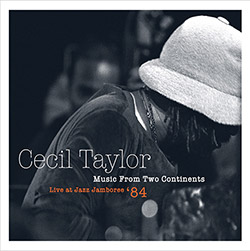

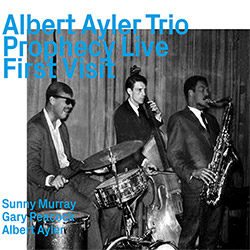

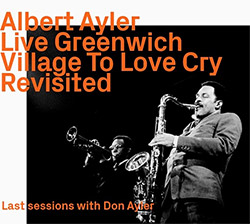

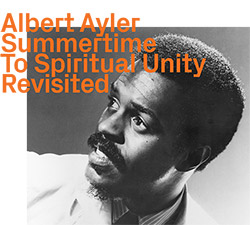
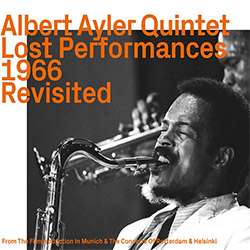



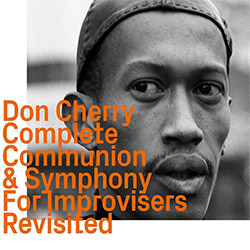
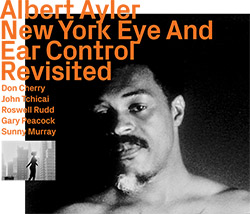
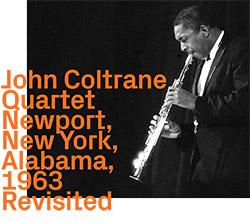




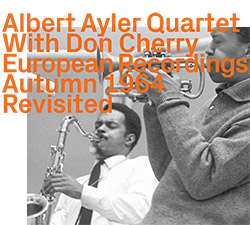

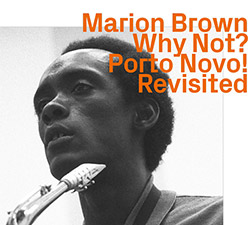
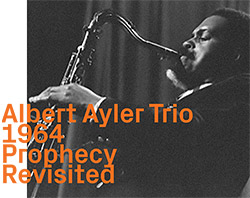


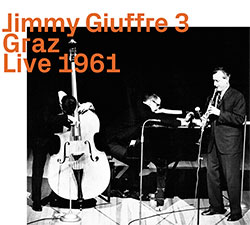
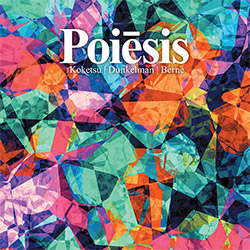










![Deupree, Jerome / Sylvie Courvoisier / Lester St. Louis / Joe Morris: Canyon [2 CDs]](https://www.teuthida.com/productImages/misc4/36404.jpg)


![Eternities: Rides Again [CASSETTE]](https://www.teuthida.com/productImages/misc4/36247.jpg)

![Lopez, Francisco: Untitled (2021-2022) [2 CDs]](https://www.teuthida.com/productImages/misc4/36438.jpg)




![Eventless Plot | Haarvol: The Subliminal Paths [CASSETTE + DOWNLOAD]](https://www.teuthida.com/productImages/misc4/36232.jpg)












![Eventless Plot | Francesco Covarino: Methexis [CASSETTE + DOWNLOAD]](https://www.teuthida.com/productImages/misc4/36231.jpg)



![Das B (Mazen Kerbaj / Mike Majkowski / Magda Mayas / Tony Buck): Love [VINYL]](https://www.teuthida.com/productImages/misc4/36329.jpg)



![Hemphill Stringtet, The: Plays the Music of Julius Hemphill [VINYL]](https://www.teuthida.com/productImages/misc4/36409.jpg)



![Halvorson, Mary Septet: Illusionary Sea [2 LPS]](https://www.teuthida.com/productImages/misc4/17952.jpg)






![Money : Money 2 [2 CDs]](https://www.teuthida.com/productImages/misc4/35894.jpg)




![Klinga, Erik: Elusive Shimmer [VINYL]](https://www.teuthida.com/productImages/misc4/36258.jpg)
![CHANGES TO blind (Phil Zampino): Volume 9 - I Wave on a Fine Vile Mist [CD + DOWNLOAD]](https://www.teuthida.com/productImages/misc4/36061.jpg)

![Wallmart / Rubbish: Asset Protection [split CD]](https://www.teuthida.com/productImages/misc4/35900.jpg)


![+Dog+: The Family Music Book Vol. 5 [2 CDs]](https://www.teuthida.com/productImages/misc4/35897.jpg)
![Kuvveti, Deli : Kuslar Soyledi [CASSETTE w/ DOWNLOAD]](https://www.teuthida.com/productImages/misc4/36107.jpg)

![Nakayama, Tetsuya: Edo Wan [CASSETTE w/ DOWNLOAD]](https://www.teuthida.com/productImages/misc4/36105.jpg)




![Yiyuan, Liang / Li Daiguo: Sonic Talismans [VINYL]](https://www.teuthida.com/productImages/misc4/35957.jpg)
![Brown, Dan / Dan Reynolds: Live At The Grange Hall [unauthorized][CASSETTE]](https://www.teuthida.com/productImages/misc4/36245.jpg)








![Palestine, Charlemagne / Seppe Gebruers: Beyondddddd The Notessssss [VINYL]](https://www.teuthida.com/productImages/misc4/36206.jpg)
![Palestine, Charlemagne / Seppe Gebruers: Beyondddddd The Notessssss [NEON GREEN VINYL]](https://www.teuthida.com/productImages/misc4/36207.jpg)

![Laubrock, Ingrid: Purposing The Air [2 CDs]](https://www.teuthida.com/productImages/misc4/35639.jpg)

![Yoko, Ono / The Great Learning Orchestra: Selected Recordings From Grapefruit [2 CDs]](https://www.teuthida.com/productImages/misc4/35841.jpg)









![Zorn, John / JACK Quartet: The Complete String Quartets [2 CDs]](https://www.teuthida.com/productImages/misc4/35609.jpg)

![Lonsdale, Eden: Dawnings [2 CDs]](https://www.teuthida.com/productImages/misc4/35480.jpg)



![Sorry For Laughing (G. Whitlow / M. Bates / Dave-Id / E. Ka-Spel): Rain Flowers [2 CDS]](https://www.teuthida.com/productImages/misc4/35985.jpg)

![Rolando, Tommaso / Andy Moor : Biscotti [CASSETTE w/ DOWNLOADS]](https://www.teuthida.com/productImages/misc4/36106.jpg)


![Electric Bird Noise / Derek Roddy: 8-10-22 [CD EP]](https://www.teuthida.com/productImages/misc4/35970.jpg)








![Elephant9 : Mythical River [VINYL]](https://www.teuthida.com/productImages/misc4/34624.jpg)



![Elephant9 with Terje Rypdal: Catching Fire [VINYL 2 LPs]](https://www.teuthida.com/productImages/misc4/35355.jpg)
![Deerlady (Obomsawin, Mali / Magdalena Abrego): Greatest Hits [VINYL]](https://www.teuthida.com/productImages/misc4/34876.jpg)







![Surplus 1980: Illusion of Consistency [CD]](https://www.teuthida.com/productImages/misc4/35069.jpg)
![Staiano, Moe: Away Towards the Light [VINYL + DOWNLOAD]](https://www.teuthida.com/productImages/misc4/35037.jpg)
![Coley, Byron: Dating Tips for Touring Bands [VINYL]](https://www.teuthida.com/productImages/misc4/17906.jpg)

![Lost Kisses: My Life is Sad & Funny [DVD]](https://www.teuthida.com/productImages/misc4/lostKissesDVD.jpg)